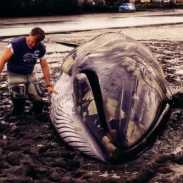
More stranding records to come as we digitize our records from years past ››
Whale Rescue team members have been involved in hands on cetacean rescue in New Zealand since 1970 and continue to this day.
Home → Rescues
Cetacean (whale and dolphin) rescues come in many different shapes and sizes. Here are some of the events members of Whale Rescue have been involved in.

Whale Rescue team members have been involved in hands on cetacean rescue in New Zealand since 1970 and continue to this day.
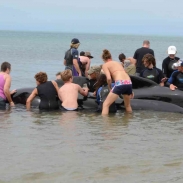
A multi-day rescue attempt saw more than half of this group of pilot whales saved. The group split into two, making rescue all that more harder.
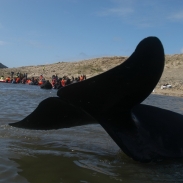
Quite possibly one of the most extensive relocations of stranded whales, the survivors of this mass stranding of pilot whales was trucked more than 50 km overland to a beach which offered safe conditions for them to be refloated.
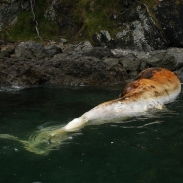
With the first report of this whale in early November, stating that it was alive and in a ‘rock-pool’ a search was begun along the coastline. However, no whale was sighted, yet within a week this carcass was found wedged in a tiny bay. Could it have been the same whale?
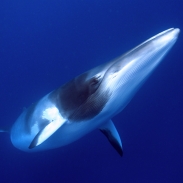
A single Minke whale stranded and was refloated on the 28th May. A search in the area on the 29th did not find the whale at sea or restranded.
_Ali_Perkins_resize_183_183_cy_100.jpg)
First reported as a dead pilot whale, Dr Ingrid Visser identified it as a pygmy killer whale - the first record for New Zealand. This now brings the number of cetacean species recorded in New Zealand waters (included stranded) to 43 species.
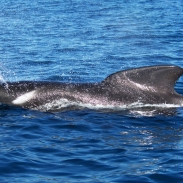
With a call alerting Dr Ingrid Visser to the fact that a ‘large group’ of pilot whales was headed directly for the shore, she took her boat to investigate.
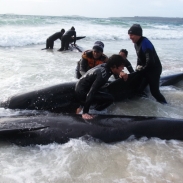
Due to onshore surf and increasing winds it was not possible to release these whales at their stranding site and they were moved overland to be released on the other side of the peninsula.
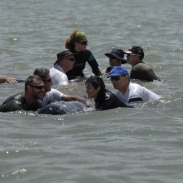
A call for volunteers to help stranded whales, the day after Christmas in one of New Zealand’s top holiday spots, resulted in 100’s of people turning up to help a large group of pilot whales. It is possible this stranding was triggered by a pregnant whale having trouble giving birth as less than one hour after the whales were rescued a newborn calf was sighted by Whale Rescue team members.
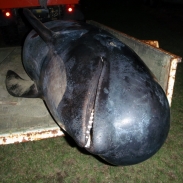
Given the light colouring on the vental surface of a stranded pilot whale a member of the public thought they had found a stranded orca. Whale Rescue responded, but upon arrival found the adult female pilot whale already dead.
Whale Rescue is a volunteer organisation, run by volunteers. There are lots of different ways that you can help us to continue rescuing whales and dolphins.